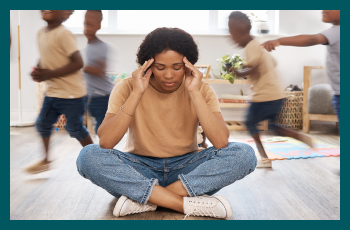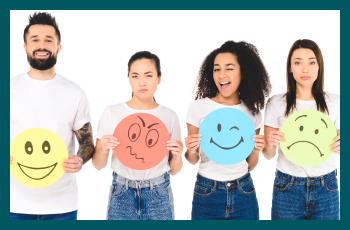Navigating The Depths Of Depression: Understanding, Coping, And Seeking Help
Written by Sai Pragna Chagarla, Staff Writer – Hola Health

Contents

What are the types of depression?
- Major Depressive Disorder (MDD): Major Depressive Disorder is the most common form of depression. It is characterized by significant feelings of sadness, hopelessness, and a lack of interest or pleasure in activities normally done. MDD can significantly impact daily life, affecting one’s ability to work, sleep, and maintain relationships.
- Persistent Depressive Disorder (PDD): Formerly known as dysthymia, PDD is a chronic form of depression lasting for at least two years. Individuals with PDD may experience periods of major depression interspersed with milder symptoms.
- Bipolar Disorder: Bipolar disorder involves episodes of depression and mania or hypomania. During depressive episodes, individuals may feel the same symptoms as those with major depressive disorder.
- Seasonal Affective Disorder (SAD): SAD is a type of depression that occurs at specific times of the year, usually during fall and winter when there is less sunlight. Lack of sunlight exposure may disrupt the body’s internal clock and lead to depressive symptoms. This is less in common with Australians.
- Perinatal and postnatal Depression: Perinatal and Postnatal depression affects new mothers and fathers. It can occur within the first year after giving birth or during the pregnancy. It is more severe than the “baby blues” and may require professional intervention. The stress due to change in schedule, handling a new baby could affect both male and female parents.
What causes depression?
- Life events
- Long term unemployment
- Loss of a loved one
- An accident or illness
- Losing a job
- Financial distress
- Abusive or uncaring relationship
- Isolation and loneliness
- Natural disasters such as bushfires, Pandemics such as Covid-19 etc.
- Family history of depression
- Drug and alcohol abuse
- Low self-esteem, perfectionism, feeling worthless.
- Work stress
What are the symptoms of depression?
- Persistent sadness or low mood
- Loss of interest or pleasure in daily activities that were once enjoyed by the person depressed.
- Changes in sleep patterns such as insomnia or excessive sleeping
- Fatigue or lack of energy even when nothing was done to induce the fatigue.
- Feelings of worthlessness or guilt
- Difficulty concentrating
- Changes in appetite or weight such as weight loss or excessive eating
- Irritability or restlessness
- Physical symptoms such as vomiting, nausea, headaches, stomach aches.
- Withdrawal from social activities and isolating from friends and family.
- Thoughts of death or suicide in extreme cases.
When should I see a doctor for depression?
- Psychotherapy, or counselling, approaches such as Cognitive-Behavioural Therapy (CBT), Interpersonal Therapy (IPT), and Mindfulness-Based Cognitive Therapy (MBCT)
- Medication management - In some cases, antidepressant medications are prescribed to alleviate symptoms. Selective serotonin reuptake inhibitors (SSRIs) and serotonin-norepinephrine reuptake inhibitors (SNRIs) are commonly used under the supervision of healthcare professionals.
- Community counselling and support programs
- Lifestyle changes such as exercising, mindfulness programs, meditation, anger management.
- Building a support system and set small yet realistic goals to bring a person out of depression slowly.

Consult an Online Doctor in 15 mins
- Speak to an Australian-registered health practitioner
- Telehealth appointment available 24 hours a day, all year round
- Request scripts, med certs, referrals or get medical advice


Consult an Online Doctor in 15 mins
- Speak to an Australian-registered health practitioner
- Telehealth appointment available 24 hours a day, all year round
- Request scripts, med certs, referrals or get medical advice
Reference
- Depression – Health Direct: Reference Link
- Depression in Teenagers – Reach Out: Reference Link
- A guide to what works for depression – Beyond Blue: Reference Link
- Types of Depression – Beyond Blue: Reference Link
- Causes of Depression – Black Dog Institute: Reference Link
- Depression – Sane.org: Reference Link
- Treatments for Depression: Department of Health and Aged Care:Reference Link
Stay in the loop
for health updates & telehealth offers for first-time users.
[wpforms id="3450"]What we treat
- Cough
- Nausea & vomiting
- Fever
- Hayfever
- Fatigue
- Sore throat
- Acne
- Hair loss
- Gout
- Eczema
- Rosacea
- Sunburn
- UTI
- Erectile dysfunction
- Contraception
- Morning sickness
- Morning after pill
- Prostate health
- Anxiety
- Depression
- Stress
- Grief & loss
- Antidepressants
- Premature ejaculation
- Asthma
- Blood pressure
- Blood thinners
- Diabetes
- Cholesterol
- Migraines & headaches
- Allergies
- Body ache
- Heartburn & reflux
- Sleep disorder
- Smoking cessation
- Pain relief
- Gastro
Related Articles
Disclaimer
This content is created for informational purposes only. It is not intended to be a substitute for professional medical advice. Always seek the guidance of your doctor or other qualified health professional with any questions you may have regarding your health or a medical condition. For emergencies please immediately contact 000.
Get affordable healthcare on your terms, with quick access to qualified, Australian-registered telehealth doctors & health practitioners, 24/7, 365 days a year. No more searching for ‘doctors near me‘ – Hola connects you instantly.
Address: 79 St Georges Terrace, Perth WA 6000
For urgent medical help & in case of emergency,
call 000.

Hola Health App

Get affordable healthcare on your terms, with quick access to qualified, Australian-registered telehealth doctors & health practitioners, 24/7, 365 days a year. No more searching for ‘doctors near me‘ – Hola connects you instantly.
Address: 79 St Georges Terrace, Perth WA 6000
For urgent medical help & in case of emergency,
call 000.
© Hola Health, a brand of Packapill Pty Ltd


 Facebook
Facebook  X
X  Copy Link
Copy Link





